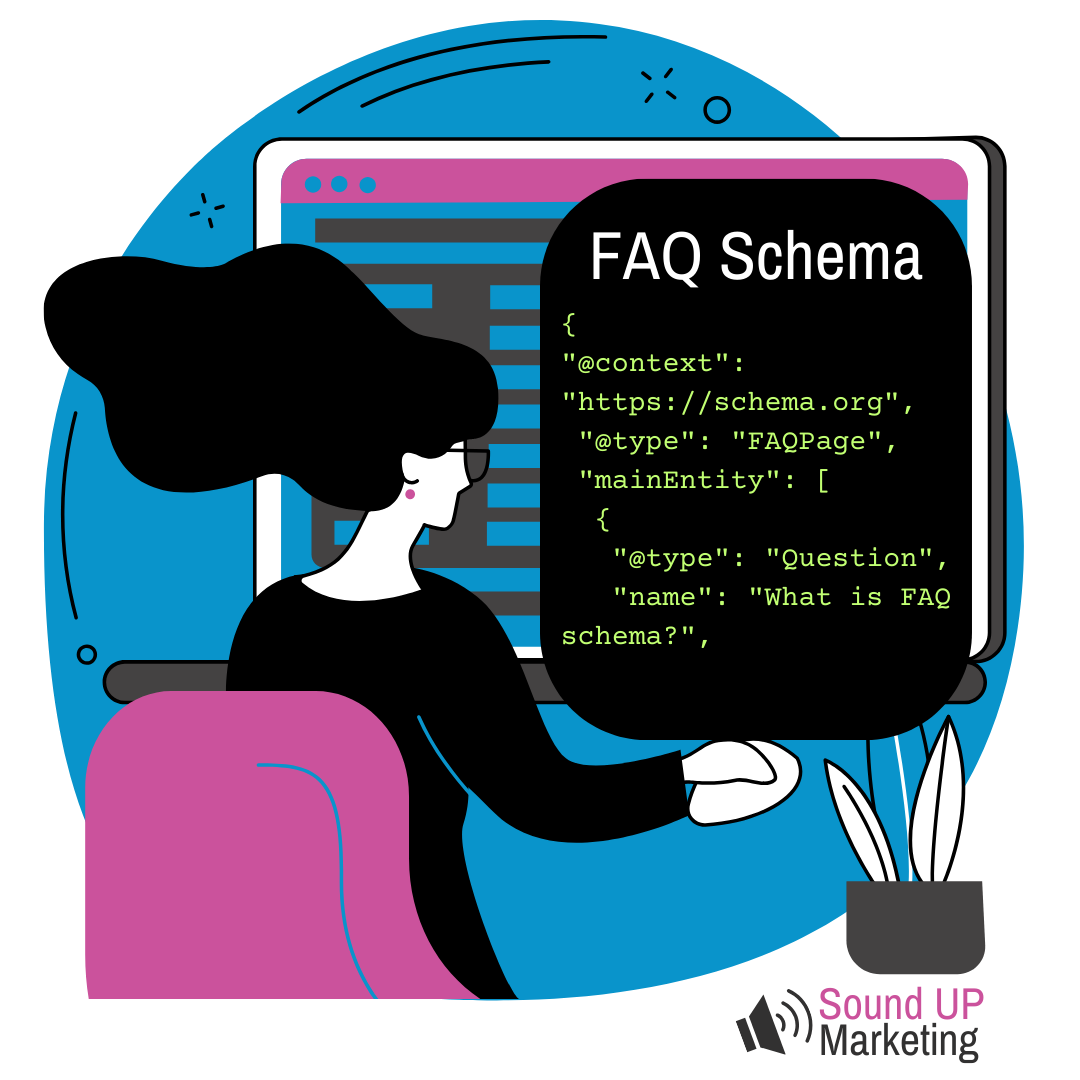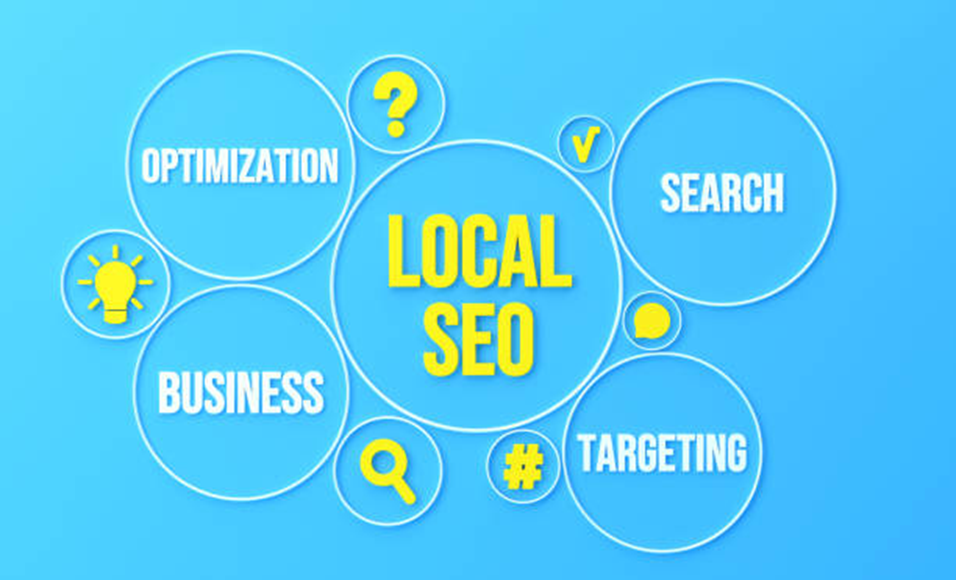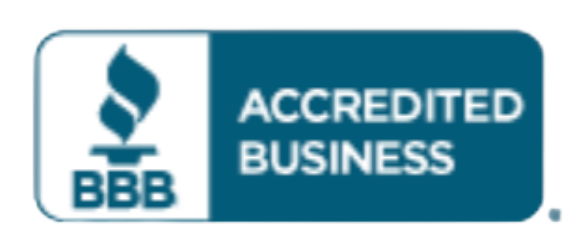The Power of FAQ Schema: Enhancing AEO for a Smarter Web Presence
Let's Start with AEO, and the Future of Website Optimization
As the digital landscape evolves, Answer Engine Optimization (AEO) has emerged as the next frontier of complete website optimization.
Unlike traditional SEO, which focuses on ranking high on search engine result pages (SERPs), AEO aims to position your content as a direct, concise answer to user queries.
AEO prioritizes conversational and structured data content, making it easier for AI-driven platforms like ChatGPT, Google Bard, and voice assistants to understand and deliver your information.
With the rise of AI search platforms, users increasingly expect fast, accurate answers. This shift demands a new optimization strategy where structured data, like FAQ schema, plays a pivotal role in ensuring your content is accessible and AI-ready.
What is FAQ Schema, and Why Does It Matter?
FAQ Schema is a type of structured data markup, or code, that allows you to present frequently asked questions and their answers in a format that search engines and AI tools can easily understand. Used in conjunction with a clear, correlating FAQ section on your web page adds incredible value and discoverability to your site.
When done correctly, FAQ schema enables your content to appear as rich results, often featuring expandable FAQ dropdowns directly in search results. This is huge for user engagement and clicks.
BENEFITS OF FAQ SCHEMA
FAQ Schema in SERPs and AI Search Results
Informative FAQs with accompanying FAQ schema markup play a critical role in both traditional Search Engine Results Pages (SERPs) and AI-driven results. Here's an impact breakdown:
With FAQ Schema Markup:
- In SERPs: Proper schema markup allows search engines to recognize and display FAQs as rich results, improving visibility and click-through rates.
- In AI Search: AI platforms like ChatGPT rely heavily on structured data to find and present accurate answers to user queries, making FAQ schema essential for AI optimization.
Without FAQ Schema Markup:
- In SERPs: Even with an FAQ section on your website, search engines must infer the relationships between questions and answers, which can lead to less precise or incomplete results.
- In AI Search: Without schema, AI platforms may struggle to identify and extract FAQ content effectively, reducing the likelihood of your content being featured.
As you can see, having an
FAQ section on your website is valuable, but implementing FAQ schema markup enhances your chances of appearing prominently in both SERPs and AI-generated responses.
How FAQ Schema Enhances AEO
FAQ schema aligns perfectly with the goals of AEO by structuring content for direct consumption by AI-driven platforms. Here's how:
1. Richer Search Results:
FAQ schema helps your content stand out by displaying a list of questions and answers directly in search results.
This visibility draws more user attention and improves click-through rates.
2. Answering Conversational Queries:
AI platforms often process natural language queries and questions like "How does SEO help my business?" or "What are the benefits of FAQ schema?"
By structuring your FAQs with schema, you ensure your content is primed to answer these conversational questions, enhancing its relevance in AI-driven search.
3. Increased Shareability Across Platforms:
Structured FAQs are not just for search engines; they’re also used by AI assistants and chatbots to provide answers. Your content becomes more versatile and shareable, extending its reach beyond traditional SERPs.
The Role of an FAQ Section in Website Optimization
Adding a well-structured Frequently Asked Questions (FAQ) section to your website serves two primary purposes:
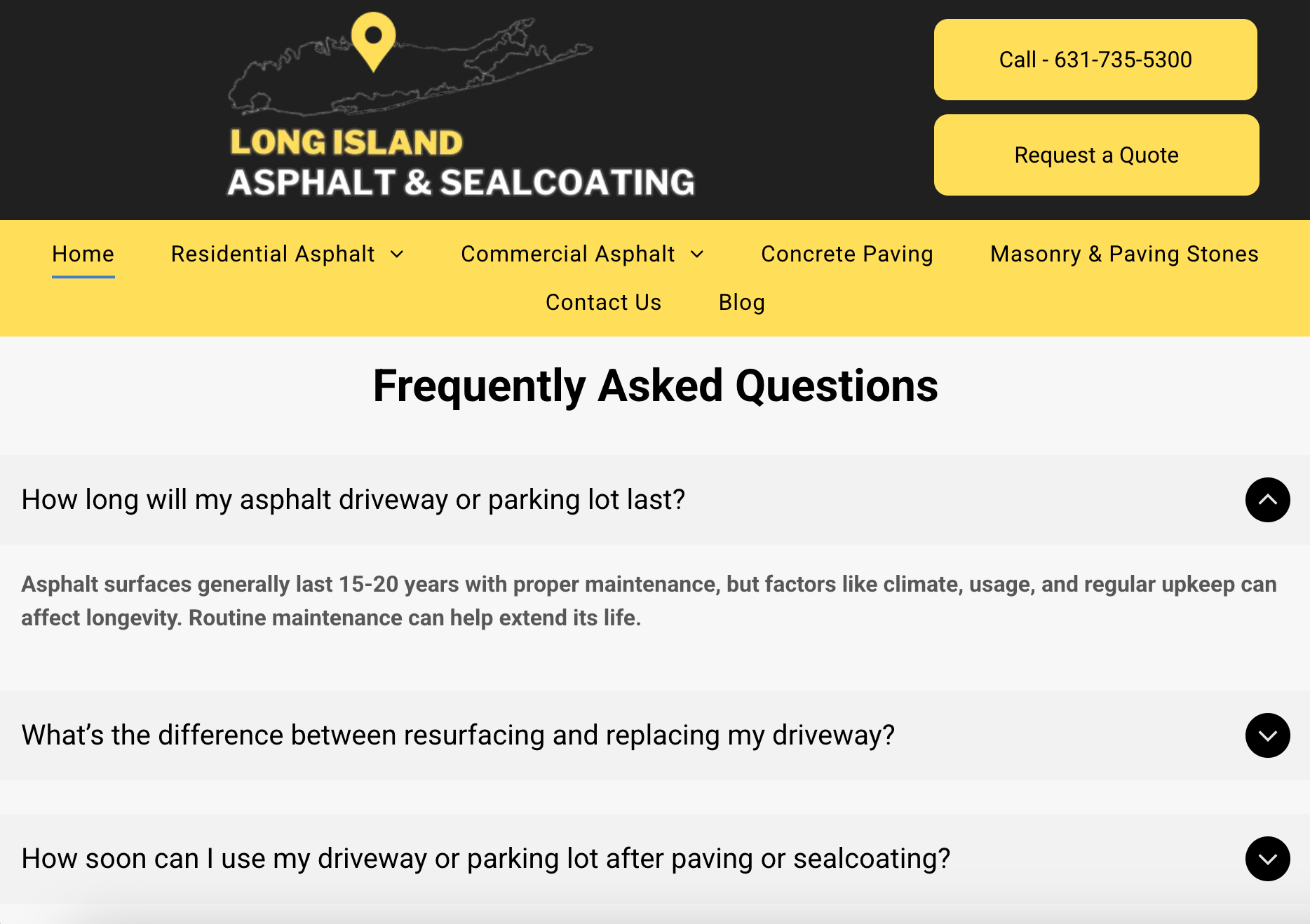
Improved User Experience:
An FAQ section addresses common user questions, reducing friction and enhancing navigation.
It ensures that visitors find the information they need quickly, encouraging longer time on site and higher engagement.
Foundation for FAQ Schema:
The FAQ section provides the content necessary for implementing FAQ schema markup.
With properly tagged schema, search engines and AI tools can interpret and share your FAQs more effectively.
How to Implement FAQ Schema
1. Create a List of Frequently Asked Questions (FAQs):
Identify common questions your audience has about your products, services, or industry.
Write clear, concise answers to each question.
2. Generate FAQ Schema:
Use tools like dentsu’s Schema Markup Generator to create JSON-LD code for your Frequently Asked Questions (FAQs).
Here's an example FAQ schema:
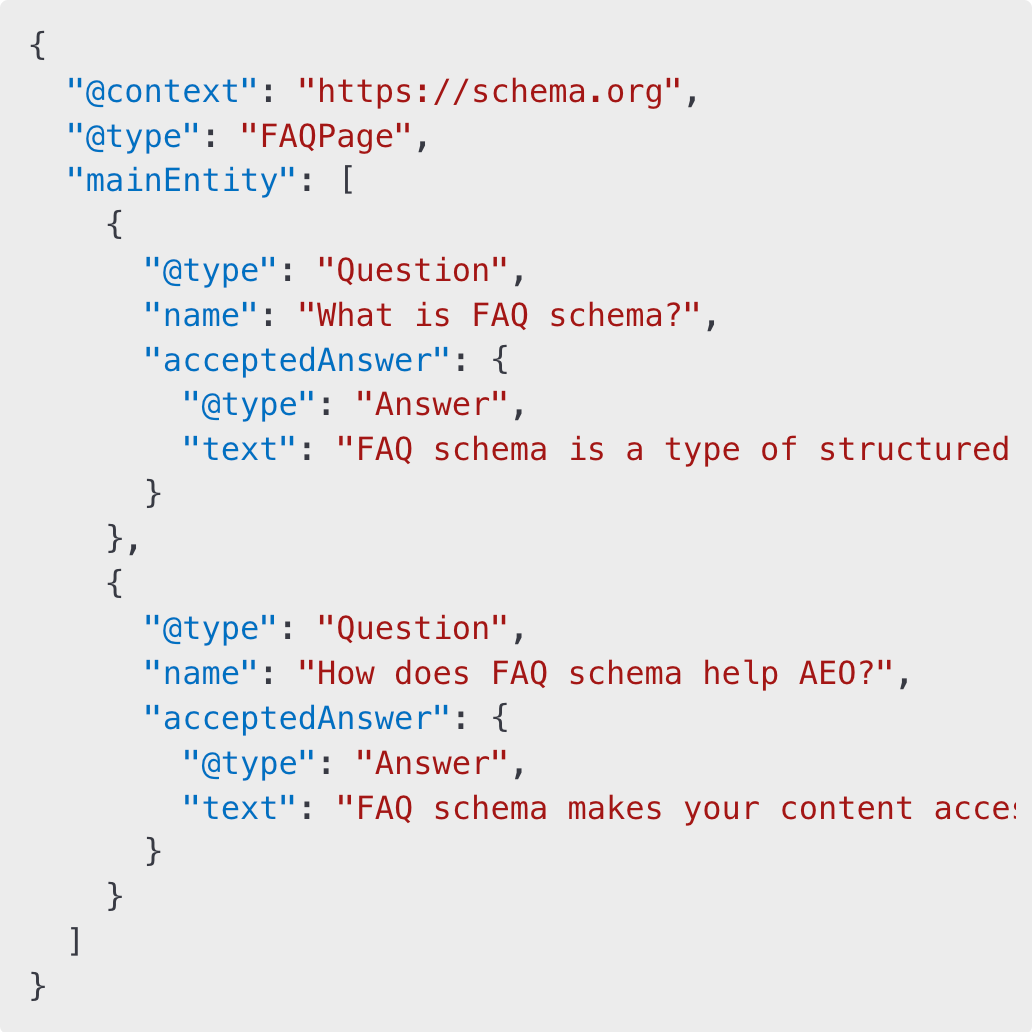
3. Add Schema to Your Website:
Embed the JSON-LD code in the <head> or <body> section of the page containing your FAQ section.
Alternatively, use a WordPress plugin like Yoast or RankMath.
4. Test and Validate:
Use Google’s Rich Results Test to ensure the schema is error-free and properly implemented.
In Conclusion: FAQ Schema for AEO & SEO
The future is here, and it’s powered by AI-driven search and user-friendly content strategies. Tools like FAQ schema help to bridge the gap between your content and users searching for answers.
By creating a robust FAQ section and implementing FAQ schema markup, you position your website for greater visibility, richer search results, and improved engagement across both traditional and AI-driven search platforms.
Take advantage of Frequently Asked Questions (FAQs) and FAQ Schema to enhance your SEO and AEO, and stay ahead of tomorrow’s digital demands.
Frequently Asked Questions
What is the difference between FAQ schema and a FAQ section?
FAQ schema is structured data that helps search engines understand your FAQs, while an FAQ section is the visible content on your website. Both work together to improve visibility and user engagement.
Can FAQ schema improve my website’s rankings?
While FAQ schema itself doesn’t directly improve rankings, it increases visibility in search results, leading to higher click-through rates and engagement, which are ranking factors.
Do I need an FAQ section to use FAQ schema?
Yes, an FAQ schema must represent actual FAQs displayed on your website to comply with Google’s guidelines and maximize its effectiveness.
How does FAQ schema benefit AI platforms like ChatGPT?
FAQ schema provides AI platforms with clear, structured data to deliver accurate and relevant answers to user queries.
Can I use FAQ schema on every page of my website?
Yes, but it’s most effective when applied to pages where FAQs naturally complement the content, like service or product pages.
How do I validate my FAQ schema?
Use tools like Google’s Rich Results Test or the Schema Markup Validator to ensure your schema is error-free and working properly.
Ready to turn the
#SoundUP?
Let's connect! We’re here to help.
Send us a message and we’ll be in touch.
Or give us a call today at 631-919-7441
Agency Contact Form
More Marketing Tips, Tricks & Tools



